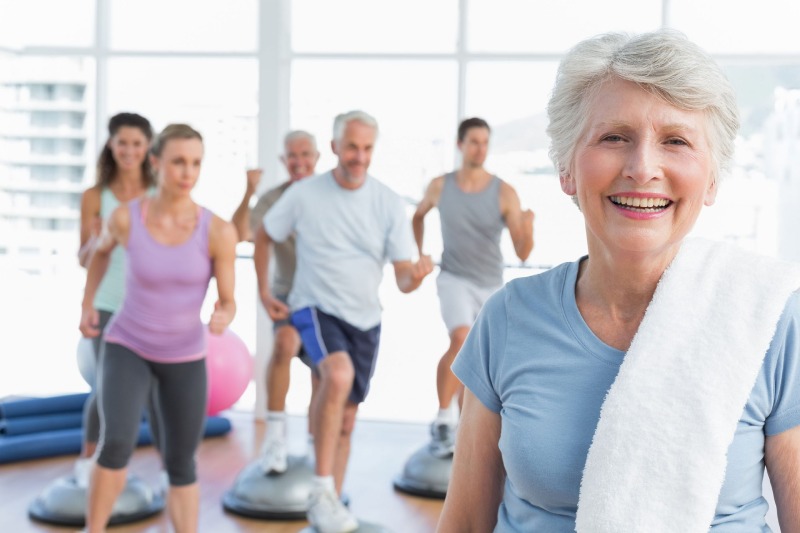Regular exercise can help seniors maintain better physical and mental health, enhancing their golden years with energy and happiness.
Research indicates that physical activity mitigates inflammation and increases brain plasticity, both of which are critical in the treatment of dementia symptoms. Exercise helps lessen the symptoms of Parkinson’s disease, such as stiffness and tremors, and enhance motor function. People who are dealing with these diseases can greatly benefit from a well-rounded exercise regimen that includes both mental and physical exercises, as well as a supportive caring environment.
6 Exercises and Lifestyle Hacks to Help You Stay Active into Your Golden Years
1. Take Part in Strength and Aerobic Training
Exercises like walking, cycling, swimming, and dancing can boost mood and cardiovascular health while boosting blood flow to the brain and preventing cognitive loss. Maintaining muscular mass, strength, and bone density through bodyweight workouts, resistance bands, or weights helps to sustain daily tasks while lowering the risk of falls.
2. Include Physiotherapy
Physiotherapy can greatly improve balance and coordination, which is essential for lowering the risk of falls and increasing an older person’s range of motion. Physiotherapy-tailored exercises can support the preservation of functional independence and target certain physical issues that older adults may encounter.
3. Include Routine Tasks
Make an effort to include daily tasks like errands and housework into your schedule. These exercises will help you stay active and engaged throughout the day, and they are equally vital for preserving general fitness and physical activity.
4. Personalized Routine with Safety and Support
With the help of experts, create a customized fitness program based on each person’s needs and capabilities. When it comes to guaranteeing support and safety during workouts, caregivers are essential. Promote regular exercise, create a happy atmosphere, make use of the right tools, and modify activities to fit the skills of each person.
5. Give Flexibility First Priority
Frequent yoga, pilates, and stretching exercises enhance joint health and flexibility. Maintaining flexible muscles and joints can greatly lower the risk of injury. Options like wheelchair yoga can be very helpful for people who use wheelchairs or have mobility issues in maintaining their flexibility.
6. Perform Mental Workouts
It’s crucial to remember that mental and physical activities are equally important. Maintaining cognitive health requires mental workouts like reading, playing memory games, and solving puzzles. Engaging in these activities can help maintain mental acuity, enhance memory, and lower the risk of cognitive decline.












